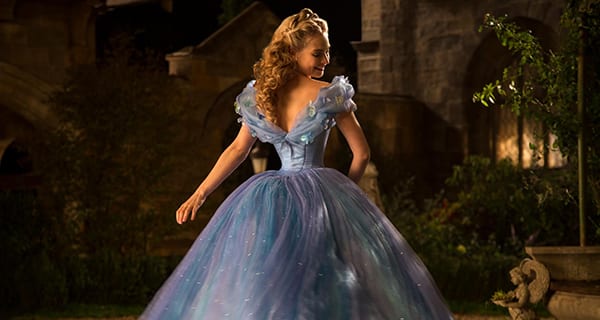 Though The Walt Disney Co. has been criticized for changing traditional fairy tales to make them palatable for modern audiences, sometimes it simply brings the lesson of the legend into very clear focus.
Though The Walt Disney Co. has been criticized for changing traditional fairy tales to make them palatable for modern audiences, sometimes it simply brings the lesson of the legend into very clear focus.
A good example is the 2015 live action version of Cinderella starring Lily James, of Downton Abby fame.
Cinderella’s birth mother gives her a simple yet profound message before she passes away: “Have courage and be kind.” This line is repeated numerous times through the film.
The story of Cinderella has taken many forms in many places through the centuries. It’s the story of a generous young girl who loses her parents, lives with an abusive stepmother and her daughters, yet maintains her sense of self and goes on to become the most powerful woman in her realm.
Many have criticized this approach to abuse, claiming that Cinderella should have left or at least fought back.
There are many times in a person’s life, however, when these options are simply not possible. Abusers, whether on a personal or social level, have power over others and they don’t relinquish their positions willingly. Escape is also often not an option.
Where would Cinderella have gone?
Instead of blaming the victim in these situations, we need to ask what we did to help and what we could have done. So often people express thanks to those who made a difference in their lives, those who were there when then needed someone, yet far too many times we turn our backs and walk away.
To understand the effectiveness of “Have courage and be kind,” we can look at examples of great people in recent history.
Immaculee Ilibagiza is a Tutsi woman who experienced the Rwandan genocide, which resulted in the death of up to a million Tutsis and moderate Hutus. Her book Left to Tell recounts many harrowing scenes. While the world ignored Rwanda, Immaculee courageously faced her potential murderers, held true to her principles and survived.
Today, she’s a highly revered writer and speaker on the power of faith and forgiveness.
Nelson Mandela faced extreme racism in apartheid-era South Africa. After trying to liberate his people using violence, he was sentenced to life in prison. He spent his incarceration courageously rediscovering his principles, learning to understand the thoughts of those who imprisoned him, and emerged 27 years later as one of the greatest leaders the world has seen.
Mohandas Gandhi similarly faced racism under British colonialism. He endured beatings and imprisonment with courage. He embraced kindness and unrelenting nonviolent resistance. In the end, he faced down the most powerful empire in the world and changed history.
In many ways, this quote from Gandhi is a summary of the Cinderella story: “When I despair, I remember that all through history the way of truth and love has always won. There have been tyrants and murderers and for a time they seem invincible but in the end, they always fall – think of it – always.”
We all face hard times, injustice and oppression. Our instinctive reaction is fight or flight, yet often neither option is possible.
The Cinderella story is for all of us because “Have courage and be kind” is always a choice we can make. We may need to find creative ways to cope with uncomfortable situations as we wait for them to turn around, as Cinderella turned to her imagination and Mandela studied Afrikaans, but as long as we remain true to our principles, these uncomfortable situations will be life-giving.
Cinderella didn’t become a great queen by chance. She had already overcome adversity with integrity and grace, and when the opportunity to rule the land came to her, she was prepared.
Regardless of what life brings our way, “Have courage, and be kind” is always the path to greatness.
Troy Media columnist Gerry Chidiac is an award-winning high school teacher specializing in languages, genocide studies and work with at-risk students.
The views, opinions and positions expressed by columnists and contributors are the author’s alone. They do not inherently or expressly reflect the views, opinions and/or positions of our publication.





